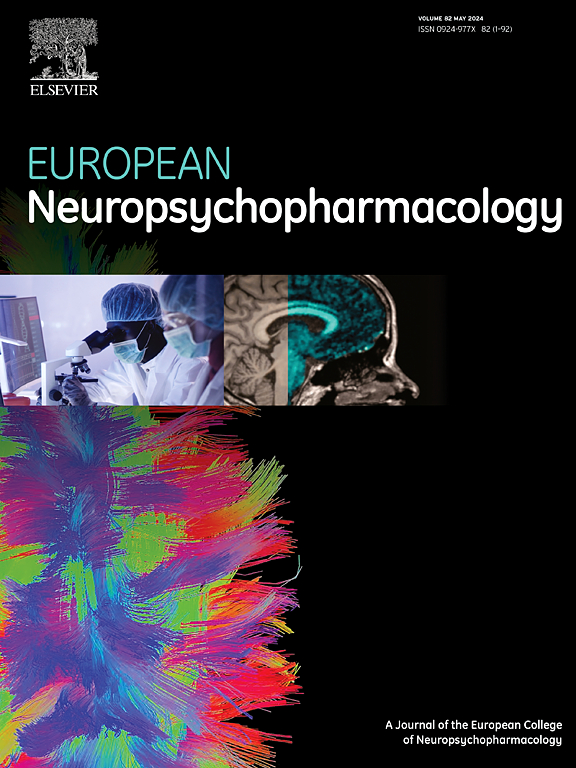ACCELERATING DRUG REPURPOSING IN PSYCHIATRY USING GENETICS
IF 6.1
2区 医学
Q1 CLINICAL NEUROLOGY
引用次数: 0
Abstract
New pharmacotherapies in psychiatry would likely reduce the immense burden that mental health conditions place on individuals and society at large. However, the pipeline to discover novel drugs for use in psychiatric disorders has remained unproductive, where a lack of objective biomarkers for psychiatric diagnoses and the assessment of treatment outcomes contributes to clinical trial failure. Therefore, new approaches are urgently needed to identify more suitable drug candidates for clinical trials. One approach is the integration of human genetic and molecular data to identify and prioritize existing drugs for human clinical trials, known as drug repurposing. This approach has previously been successfully applied in psychiatry and offers an avenue for expedited clinical translation compared to traditional drug discovery. For example, valproic acid was originally used for its anticonvulsant properties in epilepsy before its utility in bipolar disorder was uncovered. Despite the promise of drug repurposing in psychiatry, challenges remain arising from the immense biological heterogeneity of these phenotypes. The advent of well powered, genetic association studies and high throughput measurements on diverse molecular data types (e.g., gene expression) represent an opportunity to better understand the biological complexity of these phenotypes and accelerate successfully translating prospective repurposing candidates into clinical practice. In this symposium, we will outline some of the key methodological considerations and progress to date in genetically informed prioritization of repurposing candidates across psychiatric disorders. Specifically, we will discuss how integration of genetic association signals with multiomic data can reveal prospective opportunities for drug repurposing. Approaches to biologically interpret individual target genes in the context of the wider polygenic architecture of these disorders will also be outlined. Shared genetic liability and biological relationships between psychiatric disorders and somatic disorders across the rest of the body treated by existing drugs additionally can present supporting lines of evidence for prospective repurposing candidates. Finally, given the immense variability observed between individuals with the same diagnosis, we will discuss the prospects of using genetics to target drug repurposing opportunities with greater precision at the individual level. This symposium brings together a diverse set of international researchers that are working at the forefront of innovative approaches to identify opportunities for drug repurposing in psychiatry.
利用遗传学加速精神病学的药物再利用
精神病学中的新药物疗法很可能会减轻精神疾病给个人和整个社会带来的巨大负担。然而,发现用于治疗精神疾病的新药的渠道一直没有成果,其中缺乏用于精神疾病诊断和治疗效果评估的客观生物标志物导致了临床试验的失败。因此,迫切需要新的方法来为临床试验确定更合适的候选药物。其中一种方法是整合人类基因和分子数据,为人类临床试验识别现有药物并确定其优先次序,即所谓的药物再利用。这种方法此前已成功应用于精神病学领域,与传统的药物发现相比,它为加快临床转化提供了一条途径。例如,丙戊酸最初用于治疗癫痫的抗惊厥特性,后来才发现它可用于治疗躁郁症。尽管精神病学中的药物再利用前景广阔,但由于这些表型的生物异质性巨大,挑战依然存在。动力充足的遗传关联研究和对不同分子数据类型(如基因表达)的高通量测量的出现,为更好地了解这些表型的生物学复杂性并加快将潜在的再利用候选药物成功转化为临床实践提供了机会。在本次研讨会上,我们将概述一些关键的方法学考虑因素,以及迄今为止在跨精神疾病的基因知情优先再利用候选药物方面取得的进展。具体来说,我们将讨论遗传关联信号与多组学数据的整合如何揭示药物再利用的潜在机会。此外,我们还将概述在这些疾病更广泛的多基因结构背景下从生物学角度解释单个目标基因的方法。此外,现有药物所治疗的精神疾病和身体其他部位的躯体疾病之间的共同遗传责任和生物学关系也能为潜在的再利用候选药物提供支持性证据。最后,鉴于同一诊断的个体之间存在巨大差异,我们将讨论利用遗传学在个体水平上更精确地瞄准药物再利用机会的前景。本次研讨会汇集了国际上不同的研究人员,他们都站在创新方法的最前沿,为精神病学的药物再利用寻找机会。
本文章由计算机程序翻译,如有差异,请以英文原文为准。
求助全文
约1分钟内获得全文
求助全文
来源期刊

European Neuropsychopharmacology
医学-精神病学
CiteScore
10.30
自引率
5.40%
发文量
730
审稿时长
41 days
期刊介绍:
European Neuropsychopharmacology is the official publication of the European College of Neuropsychopharmacology (ECNP). In accordance with the mission of the College, the journal focuses on clinical and basic science contributions that advance our understanding of brain function and human behaviour and enable translation into improved treatments and enhanced public health impact in psychiatry. Recent years have been characterized by exciting advances in basic knowledge and available experimental techniques in neuroscience and genomics. However, clinical translation of these findings has not been as rapid. The journal aims to narrow this gap by promoting findings that are expected to have a major impact on both our understanding of the biological bases of mental disorders and the development and improvement of treatments, ideally paving the way for prevention and recovery.
 求助内容:
求助内容: 应助结果提醒方式:
应助结果提醒方式:


